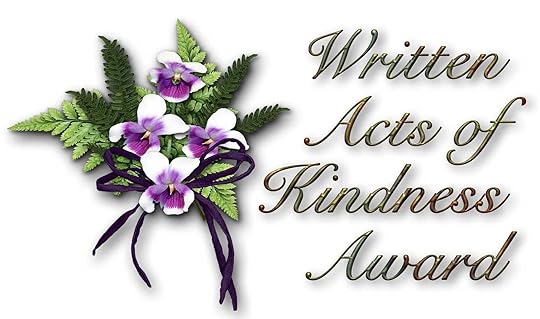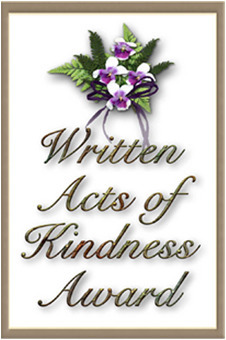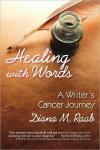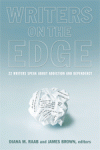Cate Russell-Cole's Blog, page 51
October 28, 2012
Being Creative Does NOT Make You Mentally Ill
 I have a blog post scheduled about this which is coming out in a few weeks, but worrying reports are going around the Internet now which are just wrong and are disturbing people. So I am going to say this now and I am going to say it LOUD. These reports only represent one set of statistics. Other studies have found otherwise. Being creative does not make you schizophrenic, depressed, suicidal, bipolar or vice versa!
I have a blog post scheduled about this which is coming out in a few weeks, but worrying reports are going around the Internet now which are just wrong and are disturbing people. So I am going to say this now and I am going to say it LOUD. These reports only represent one set of statistics. Other studies have found otherwise. Being creative does not make you schizophrenic, depressed, suicidal, bipolar or vice versa!
This kind of reporting is dangerous. It can lead people to decide that their depression or symptoms are normal and then they don’t get the help they deserve and need. As a mental health professional, this scares me for the people who don’t have full access to all the facts.
This is mental illness stereotyping at it’s worst. It is dangerous.
Creative people have their work seen more often than the general population and thus, are easier to diagnose as they are visible. For every study done on this subject, many others are done and nowhere are all studies represented, which leads to a bias in reported results.
Make your own mind up but NEVER LET YOURSELF BE NEGATIVELY STEREOTYPED.
 Being creative can be a brilliant outlet for dealing with mental illnesses, but illnesses are not generated by being creative or a creative link in someone’s DNA. To claim such a link is as silly as saying that liking to play board games or read, creates mental illness. Please beware bad journalism, poorly executed studies and sensationalism.
Being creative can be a brilliant outlet for dealing with mental illnesses, but illnesses are not generated by being creative or a creative link in someone’s DNA. To claim such a link is as silly as saying that liking to play board games or read, creates mental illness. Please beware bad journalism, poorly executed studies and sensationalism.
You are not crazy because you are creative, you are awesome!
You have the courage to follow your dreams!
Enjoy your creative life!
The offending report, which is also being quoted by numerous news sources. http://www.innovations-report.com/html/reports/medicine_health/link_creativity_mental_illness_confirmed_203837.html
More information on how little information is passed on from studies and clinical trials is in this video from TED talks. Please watch it.
Filed under: Personal Post, Writing Tagged: bad journalism, bipolar, depression, mental illness, poor research, schizophrenia, statistics, stereotyping, stigma, studies








October 27, 2012
Written Acts of Kindness Award: Kathleen Pooler

This award was supposed to be launched in 48 hours time, but guess who hit the wrong button?
When I first started working online my focus was on the “Write Your Life Story” e-course. I had a tough time. It seemed everyone was writing fiction and I was in a lonely place. Then I found Kathy Pooler.
I have been passing Kathy’s excellent posts onto my students and through my networks ever since and in return, Kathy has written me an excellent guest post and has been incredibly supportive. Kathy, you have be an inspiration, encouragement and have become a treasured friend.
Kathleen Pooler can be found online at: http://krpooler.com/ and through Twitter, Google Plus and Facebook.
Kathy, you were one of the first people in mind when I was working on putting this award together. Maybe it is no coincidence that I hit that Publish button too early! God bless.
Kathy, please take this badge below and use it as you wish. The rules for passing this Award on are very simple:
You are welcome to give it out as many times as you like, but it is only to be given to a maximum of one person per blog post. If you wish to give multiple rewards, please space the blog posts by at least a week so the sincerity is maintained.
Introduce the person; say how they encourage, help or inspire you; then link to their work and/or social media profiles. There may be a specific post you wish to link to which helped you. It’s up to you.
Please publicise your award post to Twitter or Google Plus using the hashtag #writtenkindness so that others can find and follow the award winners.
Get the Button and Code


Filed under: Awards Tagged: Written Acts of Kindness Award








Row80 Round 3 Sponsor Apology
 This is another example of petwrification in action! I have had an attack of it today…
This is another example of petwrification in action! I have had an attack of it today…
Last July I signed up as a ROW80 sponsor. It was one of the best decisions I’ve made all year. I did ensure that for every check-in, I visited everyone who was allocated to me and left a comment.
Today I was visiting a friend’s blog which is hosted on Blogger, left a comment, then as always happens, my comment disappeared. I had always just presumed my comments were filed away, waiting moderation… I was wrong.
It turns out the problem was my browser just doesn’t support the Blogger comment check in, if I am not logged into my blogger account. Quite often, I wasn’t. I’d put in a WordPress check in and thus, blog love was gone. I am so sorry!
So for everyone in Round 3 with a blogger account, if you didn’t get a visit, please know that you did! I had no idea my system was malfunctioning. I have changed to Google Chrome so this should never happen again.
A small word to Apple: Safari stinks! It used to be the most secure browser. What happened? Kindly fix it!
Filed under: Personal Post








October 25, 2012
Petwrification: A Health Warning for All Writers
Have you ever suffered from this?
 Petwrification / Petwrified (verb) pet-wri-fi-cation
Petwrification / Petwrified (verb) pet-wri-fi-cation
A psychological condition affecting writers, characterised by sudden horror, cognitive paralysis or emotional outbursts. It occurs when:
(1) finding a mistake in previously published work;
(2) discovering a phrase or point of grammar used wrongly for years;
(3) suddenly becoming immobilized on a punctuation issue;
(4) receiving negative feedback or poor reviews; and
(5) when writers have compared themselves to other writers, concluding that they are comparatively deficient.
(Derived from the common word petrify and the Latin petra, meaning rock.)”
If you would like to know more about petwrification and how to avoid it, please visit my guest post at Southern Writers Magazine’s blog: http://southernwritersmagazine.blogspot.com.au (The lack of paragraphs issue is not my doing… I know sometimes WordPress posts have gremlins I can’t get out. This could be a blogger gremlin.)

The image in this post belongs to a clipart set I bought in 1994 or so… I have no idea whose work it is.
This article / blog post is Copyright Cate Russell-Cole 2012. All rights are reserved Internationally. You may not reproduce it in any form, in part of whole, without Cate’s prior written permission. That includes usage in forms such as print, audio and digital imaging including pdf, jpg, png etc. A fee may be requested for re-using her work if it is for a commercial venture. Link sharing and Pinterest pins are most welcome as long as Cate is the attributed Author.
Please see the Blog Content and Image Copyright page of this blog for further information in regards to Guest Posts, other images, Cate’s checks on infringements and Liability.
Filed under: Writing Tagged: author, blogging, creativity, failure, fiction, goals, Indie publishing, inspiration, passion, problem solving, resource, Southern Writers Magazine, stress management, success, support, writer, writing








October 22, 2012
Healing Creative Injuries

Julia Cameron put a brilliant quote on Facebook which reads: “When creative injuries are buried rather than acknowledged, they create potent creative blocks.” I had never thought of writer’s block that way before.
Obviously injuries are caused by rejection letters, bad reviews, criticism by someone you care about, the joys of sharing the Internet with trolls… there are many ways. The question is, how do you heal these injuries? Wounds don’t necessarily get better with time. Sometimes they just get worse.
In medicine, put simply, there are two general types of wounds: superficial and deep. Superficial is skin surface or a little deeper. There is a small injury which time will heal. The deep wounds are the ones that can go down, literally, to the bone. In an environment where there is no light, fresh air or positive outside influence, infections set in and serious complications occur. You get a temperature, feel pain and it doesn’t get better unless action is taken. Does that sound like you feel after being the victim of something nasty? Hot under the collar, hurt and left limping?
So how do we heal these injuries so we can move forward?
Recognise the offence has taken place.
Talk it out with someone you can trust (not the one holding the sword), or journal it out. Say how you feel, why it was unfair etc. and get it out of your system.
Let go of the infectious emotions you are holding onto: anger, bitterness, resentment, jealousy etc. See them as the destructive forces they are and move on. At this point, if you have journaled out your feelings, you may want to burn that as a ceremonial letting go.
Move away from negative people or social media that are reinforcing your pain or adding additional hurts.
Do something for yourself that will build your self-esteem back up. Join an initiative which is positive such as Creative Every Day, ROW80 or NaNoWriMo. Remember to laugh, play with your creative media and find the joy again.
I wish the answer came as simply as taking a pain killer and the problem is solved! As with any hurt, it is not an easy process. However, the more you practice shunning the negative and embracing the positive, the easier it gets. At times we all need some constructive criticism in our lives so we can grow, but never let it become poisonous. You’re worth more than that!
This article / blog post is Copyright Cate Russell-Cole 2012. All rights are reserved Internationally. You may not reproduce it in any form, in part of whole, without Cate’s prior written permission. That includes usage in forms such as print, audio and digital imaging including pdf, jpg, png etc. A fee may be requested for re-using her work if it is for a commercial venture. Link sharing and Pinterest pins are most welcome as long as Cate is the attributed Author.
No images on this blog may be copied, captured, or altered for your own purpose without the consent of the originating owner. Where images are marked as being iStockphoto.com images, they are paid for and licenced to Cate for use on this blog. If you take them, iStockphoto.com has the right to take legal action against you for Copyright Infringement.
Please see the Blog Content and Image Copyright page of this blog for further information in regards to Guest Posts, other images, Cate’s checks on infringements and Liability.
Filed under: Creativity, Writing Tagged: author, bad reviews, challenge, conflict, creativity, failure, growth, healing, hurt, Indie publishing, injuries, inspiration, journal, Julia Cameron, mind, passion, problem solving, psychology, stress management, subconscious, success, time, trolls, victim, wounds, writer, writing








October 21, 2012
NaNoWriMo Prep: Resources to Grab
I have been roaming people’s blogs and looking at the various word count meters. Some of them are plain ugly! If you like style and colour, visit http://svenjaliv.com/resources/wordmeter/ They are free, copy and paste codes. You can change colours and adjust them in several different ways. They will copy and paste into your web site pages and blog posts as well.



3902 / 50000
(7.8%)
Svenja also has spreadsheets to track your progress for NaNoWriMo: http://svenjaliv.com/2012/10/nanowrimo-2012-word-tracker/
General writer’s use spreadsheets for 2012 are here: http://svenjaliv.com/2012/01/more-writing-spreadsheets-for-2012/ It is great to see colour used!
 If you are involved in #writemotivation, K.T. Hanna, from The Scribble Muse, has her NaNoWriMo Edition, November sign-up online now. http://www.kthanna.com/2012/10/writem...
If you are involved in #writemotivation, K.T. Hanna, from The Scribble Muse, has her NaNoWriMo Edition, November sign-up online now. http://www.kthanna.com/2012/10/writem...
Actually, sitting down and getting your goals listed in word form, can be exceptionally helpful. A Monday check-in on your blog is recommended. You can locate other #writemotivation participants on Twitter or Google Plus using that hashtag.
 While you’re at it, please do yourself a huge favour and check out Catherine Caffeinated’s blog post on NaNoWriMo and snobbery. It is worth it! http://catherineryanhoward.com/2012/10/22/nanowrimo-im-only-going-to-say-this-once-okay/
While you’re at it, please do yourself a huge favour and check out Catherine Caffeinated’s blog post on NaNoWriMo and snobbery. It is worth it! http://catherineryanhoward.com/2012/10/22/nanowrimo-im-only-going-to-say-this-once-okay/
Filed under: Writing Tagged: author, challenge, goal setting, goals, KT Hanna, Nanowrimo, problem solving, resource, Scribble Muse, spreadsheet, Twitter, word count, Writemotivation, writer, writing








October 18, 2012
NaNoWriMo Prep: Get a Theme Song, No Seriously!
 Is this a nutty flashback to Ally McBeal, or is there gain to be had by using a piece of music to get motivated? If you’ve ever felt like taking on the world after listening to inspirational lyrics, then you know, it’s the latter… plus it’s biology!
Is this a nutty flashback to Ally McBeal, or is there gain to be had by using a piece of music to get motivated? If you’ve ever felt like taking on the world after listening to inspirational lyrics, then you know, it’s the latter… plus it’s biology!
As National Novel Writing Month slips closer, all my social networks are continuing to overflow with NaNoWriMo preparation. The official Twitter feed for NaNo is encouraging the use of #nanoprep in posts to get people pumped and moving; and I have chosen a theme song and designed a desktop wallpaper: all in the name of focus! There are so many to-do tasks on my weekly lists that it will become incredibly easy to let November slip away… …
According to Mark Fenske, an associate professor in Neuroscience at the University of Guelp, music is such a driving motivator, that at times, athletes have been banned from using it, as it can maximise their endurance and performance. So you don’t see competing runners not wearing iPods because cords are a tripping hazard! Music reacts with our nervous system, accelerating heart rate, affecting our muscular coordination and getting us ready to go!
There is a great article from the Globe and Mail which goes into the science in more depth. It’s no surprise to me. Some of the greatest anthems I have loved over time include “All Fired Up” from Pat Benatar; “Living On A Prayer” by Bon Jovi, “A Question of Honour” by Sarah Brightman and “Undefeated” by Def Leppard. I could go on and on about all the songs that have significant memories and lyrics for me. I can’t do without music in my life.

From P!NK’s Raise Your Glass Video
I am a non-fiction writer, so I don’t really fit into NaNoWriMo. I have two books which are so tantalisingly close to being complete, I joined for the time crunch pressure. I want to have them finished and ready to publish in early 2013.
As I said on my ROW80 progress blog, I feel like the awkward chick at the High School dance: wrong hair, wrong outfit, radioactively glowing pimple on the end of my nose! I may not conform to the norm, but I am going for it anyway! I just need to focus… I need a deadline and I am curious as to what it’s all about.
So please tell me, what would be your choice of writing theme song, regardless of whether you’re involved in NaNoWriMo or not. I am very curious to know. Mine is P!NK’s “Raise Your Glass.” It fits: I am wrong for NaNo in all the right ways… but that won’t be stopping me.
Filed under: Writing Tagged: author, behaviour, challenge, goals, inspiration, motivation, music, Nanowrimo, success, Twitter, writer, writing








October 17, 2012
NaNoWriMo Preparation: Novel Planning
Someone was asking last week about how you prepare for NaNoWriMo. As I have moved around the web, I’ve noticed that some writers are putting in helpful groundwork, some aren’t. It’s a matter of choice.
If you’d like inspiration on novel planning, here are two excellent Youtube videos from writer, Johanna Harness. I loved the second one, but both are inspirational and full of useful ideas. Please visit her at: johannaharness.com


Filed under: Writing Tagged: amwriting, author, characterisation, clustering, creativity, fiction, goals, growth, ideas, Indie publishing, inspiration, mind mapping, Nanowrimo, novel, novel writing, novelist, planning, plot, preparation, problem solving, resource, success, support, technique, writer, writing








October 11, 2012
The Healing Energy of Words: Writing for the Health of It
Earlier this year I discovered Diana M. Raab’s work on Twitter and asked her to write a post for this blog. I am delighted that she has been able to do it. This is an excellent post for anyone who is working through any battle in their life, whether it be emotional, spiritual or physical. You can follow Diana through Facebook, Red Room and She Writes. Her web site is here and her blog is www.dianaraab.wordpress.com.
“When life takes an unexpected turn, writing can be a beneficial form of release from stress due to either emotional or physical factors. Many published authors have used writing as a catalyst for their survival during difficult times. Some of them include: Mary Karr, Jeannette Walls, Anais Nin, Joan Didion, Tobias Wolff, D.H. Lawrence, Isabel Allende, Vivian Gornick, Kathr writers and Kathryn Harrison, Sue William Silverman, and May Sarton to name a few. For many writers, writing gives a purpose and meaning to their life.
D.H. Lawrence, for example, sat at his mother’s bedside while she was dying and wrote poems about her. He also began an early draft of Sons and Lovers, his novel which explored their complicated, loving, painful and close relationship. Marcel Proust wrote Remembrance of Things Past while sick in bed with asthma. Flannery O’Connor wrote some of her best stories while dying from lupus. I wrote my first book, Getting Pregnant and Staying Pregnant: A Guide to High-Risk Pregnancies back in 1983 while I was on bed rest with my eldest daughter. The book began as a journal I typed on my Smith Corona which was mounted upon a specially-designed bed table my husband built for me. After my daughter was born, I condensed the journal into a prologue and added research to create a self-help reference book for women having similar experiences. Now, more than twenty years later, the book is still in print and has helped many women cope with problem pregnancies.
 In her book, Recovering, May Sarton chronicles her battles with depression and cancer. Anais Nin used her journals to write to her deranged father who left the family when she was young. In Nin’s case, her journal entries became a springboard for a four-volume collection of her journals. The memoirist, Mimi Schwartz is another writer who used her journals as a springboard. I’ve heard Mimi speak at a number of writing conferences and she shares her story of having written an essay for Lear’s Magazine about her experience with breast cancer. “Journal writing,” she says, “and the process of turning it into a public account—made all the difference for me in recovering quickly, emotionally and physically. It gave me a double set of survival goals: health and telling the story.” As a matter of fact, her journal notes inspired her to go from being an English professor to being a narrative writer.
In her book, Recovering, May Sarton chronicles her battles with depression and cancer. Anais Nin used her journals to write to her deranged father who left the family when she was young. In Nin’s case, her journal entries became a springboard for a four-volume collection of her journals. The memoirist, Mimi Schwartz is another writer who used her journals as a springboard. I’ve heard Mimi speak at a number of writing conferences and she shares her story of having written an essay for Lear’s Magazine about her experience with breast cancer. “Journal writing,” she says, “and the process of turning it into a public account—made all the difference for me in recovering quickly, emotionally and physically. It gave me a double set of survival goals: health and telling the story.” As a matter of fact, her journal notes inspired her to go from being an English professor to being a narrative writer.
Writing provides an opportunity to vent both small and large issues, from problems with your boss to the death of a parent. It takes a great deal of energy to be angry at someone; it’s much healthier to drop it, as one would a suitcase full of trash. Holding grudges is unhealthy and certainly quite heavy! Once we are able to let go, it’s easier to gravitate to the joys in life.
Journaling is a cathartic way to spill your feelings out on the page rather than on the person. My attitude is: “Direct the rage to the page.” I have a writing colleague who says, “If it hurts, write harder,” and for years those words were posted above my computer, until they simply became a part of me.
 Some years ago, at an Associated Writing Conference, Dr. James Pennebaker, the author of Writing to Heal said, “Writing dissolves some of the barriers between you and others. If you write, it’s easier to communicate with others.” Pennebaker believes that there’s a certain type of writing that erupts when we’re faced with loss, death, abuse, depression and trauma. He does have one rule that he calls, “the flip out rule,” which proclaims that if you get too upset when writing, then simply stop.
Some years ago, at an Associated Writing Conference, Dr. James Pennebaker, the author of Writing to Heal said, “Writing dissolves some of the barriers between you and others. If you write, it’s easier to communicate with others.” Pennebaker believes that there’s a certain type of writing that erupts when we’re faced with loss, death, abuse, depression and trauma. He does have one rule that he calls, “the flip out rule,” which proclaims that if you get too upset when writing, then simply stop.
Learning to open up about issues from your past and present lives does nott happen over night, but it’s all a part of the healing process. Author Louise DeSalvo, an advocate of writing for healing, began writing her own memoirs, Vertigo and Breathless as a result of coming to grips with her own pain.
Whether you’re affected by change, loss or pain, finding the time to write can be a boon to your healing process. Some people prefer to journal about their experience, while others may lean towards the fictional or poetic modalities to help them escape their own reality. Whatever your choice, once you try it, you’ll see that writing, in any form, can be healthy and empowering.”
Some reasons to journal
To discover yourself
To vent frustrations and express joys
To record and remember events
To fine one’s purpose
To plan for the future
To tap into your intuition
To become empowered
To build self-confidence
To allow self-expression
To uncover secrets, sometimes unknown to us
To improve communication skills
To improve mental health
 Some journaling tips
Some journaling tips
Date entries
Don’t worry about grammar
Be honestly and write deeply
Write quickly
Don’t erase
Write for yourself
Some journaling prompts
Make a list of what brings a smile to your face
Make a list of all your accomplishments
Write about your morning
Visualize a place you love and write about it
What is your first memory?
Describe a grandparent
Write about books which have changed your life and why

The entire content of this post, including book covers, is Copyright Diana M. Raab 2012 The link may be shared, but the content may not be reproduced in any form in part or full, whether that be print, audio or digital, without her prior written consent. All rights reserved, world-wide. Action will be taken against offenders.
Diana Raab’s Biography
 Since childhood, Diana has been fascinated with the written word. As an only child of working parents, she spent lots of time alone, which she filled with reading a great deal of books and filling the pages of many journals. That’s how she liked to keep busy. She always expressed herself better on the page. Today, Diana is a poet, memoirist and essayist and teaches at the UCLA Extension Writers’ Program and the Santa Barbara Writers Conference. She frequently writes and lectures on the healing powers journaling and poetry.
Since childhood, Diana has been fascinated with the written word. As an only child of working parents, she spent lots of time alone, which she filled with reading a great deal of books and filling the pages of many journals. That’s how she liked to keep busy. She always expressed herself better on the page. Today, Diana is a poet, memoirist and essayist and teaches at the UCLA Extension Writers’ Program and the Santa Barbara Writers Conference. She frequently writes and lectures on the healing powers journaling and poetry.
Her award-winning poetry, essays and memoirs have appeared widely in journals and anthologies. She has two poetry collections, Dear Anais: My Life in Poems for You (Plain View Press, 2008, winner of the 2009 Next Generation Indie Award For Poetry, and My Muse Undresses Me (Pudding House, 2007) Her memoir, Regina’s Closet: Finding My Grandmother’s Secret Journal won the 2009 Mom’s Choice Award for Adult Nonfiction and the 2008 Indie Excellence Award for Memoir.
She is currently working on her third collection of poetry. She has two forthcoming nonfiction books forthcoming, Writers and Their Notebooks (University of South Carolina Press, 2010) and Your High Risk Pregnancy: A Practical and Supportive Guide (Hunter House Publishers, 2009). This book is a newly updated version of a book originally published in the mid 1980s.
Filed under: Creativity, Journalling, Writing Tagged: Anais Nin, author, autobiography, biography, books, creativity, crisis, D.H. Lawrence, diana m raab, discovery, dying, Flannery O’Connor, goals, healing, high risk pregnancy, ideas, inspiration, Isabel Allende, Jeannette Walls, Joan Didion, journal, Kathr, Kathryn Harrison, life story, Marcel Proust, Mary Karr, May Sarton, meaning, memoir, muse, passion, pregnancy, purpose, resource, sickness, Sue William Silverman, Tobias Wolff, transformation, Vivian Gornick, writer, writing








October 8, 2012
Design Considerations for Blogs: A Lesson Learned

I was writing a post today about the value of sidebar content and realised, my old theme was past it’s use-by date for me, so I am updating it. I chose my old theme as it reflected creativity, I now wish I’d examined the pros and cons further. If you are a blogger, you may like to consider these readability and navigation issues in your blog design.
The links were all in red and not used. It could be that it’s not easily recognised that they are links, especially by new Internet users. I know underlined links are old fashioned, but looking at my stats, link following is extremely low, so that has to tell me something! All links from the blog are now blue, I will have to manually underline links when writing posts to make them more obvious. For example, Visit my web site for free content for writers and Pages iWork Suite templates vs can you see this link amongst the black?
The list of my Pages under my heading banner looked like it was sliding downwards at a drunken angle. It had driven me nuts since day one! Once I actually got a ruler, held it to the screen and put it down to being an optical illusion. The pages were so rarely visited. Perhaps they just didn’t stand out as links either?
My older, migraine-affected eyes can’t take the smaller text size anymore. Readers would have had the same issue and may have exited my blog because of it.
There is a need to clearly outline Copyright and Liability (an awful necessity.)
I’ve added a testimonial page which gives my work additional credibility.
My e-books needed greater prominence and non-essential elements such as my Twitter feed, needed to be removed to keep the blog clean, easy to read and effective in reaching my audience.
I really like this clean, easy to read layout! I miss the bar at the base of posts, but it seemed ineffective anyway. This has been a worthwhile exercise in making me think about where I place information and what is needless. Feedback is most welcome!
Filed under: Writing Tagged: author, blogging, goals, growth, ideas, inspiration, learning, problem solving, success, writer, writing













